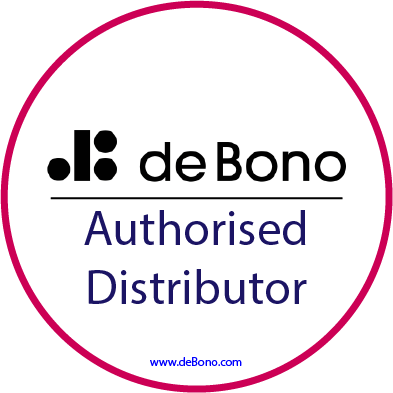Gilly Meek, Accredited Think on Your Feet® Trainer
 Nobody likes tough questions. Especially when you aren’t prepared for them! The feeling of a loss of control, that we might not be able to answer the question or that we can’t really prepare for the unknown – can be terrifying.
Nobody likes tough questions. Especially when you aren’t prepared for them! The feeling of a loss of control, that we might not be able to answer the question or that we can’t really prepare for the unknown – can be terrifying.
It can make us feel nervous, anxious and is one of the key reasons why people fear making presentations.
Not just presentations
Unfortunately, tough questions are not limited to presentations. What about meetings? In fact, most people tell us that their toughest questions are often those that they are asked when they are not expecting to be asked a question at all, for example, bumping into the boss at the coffee machine!
So, how do we deal with tough questions?
Well the first thing to remember is that they are part of working life and are inevitable. Once we accept this then we can start to consider how we handle them.
The word “handle” has been used intentionally, because sometimes dealing with a tough question is not about answering it directly, but about finding a way to handle it. Let’s face it, some questions are impossible to answer and it’s likely, deep down, that the person asking these types of questions knows that.
Here are my top three tips from our Think on Your Feet® workshop that will help you to deal with tough questions.
- Anticipate questions
Think about all the different tasks and projects you work on and consider what all the possible questions are that you might get asked.
Then think about how you might answer each of these questions.
In our Think on Your Feet® workshop we look at how to anticipate the questions that you might get asked. We teach you over 10 different techniques to handle questions and then we get you to think about which technique would enable you to answer each of the questions you highlighted.
The more you can prepare for the unexpected, the less nervous you will feel and the better response you can give. - Buy yourself some time
Buying yourself some time is not only a great way to create the time you need to think about your response, but it can also help to calm your nervousness.
There are a variety of ways you can buy yourself time. For example, you could:
- ask the listener to repeat the question;
- ask the listener to rephrase the question, or;
- simply say “I’d just like a moment to think about that”.
- Consider your key messages
Whenever you have a difficult question, it is really helpful to consider what your key messages are, or what messages you would like to get across in your response.
Difficult questions can often take you off topic or into territory that makes you feel uncomfortable. So, you really need to ask yourself:
- what information can I share here;
- what messages do I want to get across in my response, and;
- how can I best do that?
Our Think on Your Feet® workshop is packed with tools and techniques to help you to deal with all types of questions. Try the above three tips and see how you get on.
Think on Your Feet® is packed with tools and techniques to help you to deal with all types of questions. Try the above three tips and see how you get on:
- Public workshops (online and face-to-face in major UK cities).
- In-house (online and face-to-face for groups and teams, worldwide).
- Training your trainers (face-to-face accreditation for corporate trainers with large groups to train).

More about Gilly Meek
Gilly is an accredited Think on Your Feet®, Lateral Thinking, Six Thinking Hats®, The Skilled Presenter™ and Stakeholder Engagement (including Simulation)™ trainer and has delivered these workshops to numerous clients. Gilly also trains in management skills, negotiation skills, facilitation skills, impact and influence, and time management.
Prior to joining Indigo, Gilly managed the learning and development function for Global Radio, the UK’s largest radio organisation; training and coaching employees across a number of brands including Heart, LBC and Galaxy Radio. She has also led global initiatives for numerous multi-national organisations – including the design and delivery of management, leadership and soft-skills programmes.


